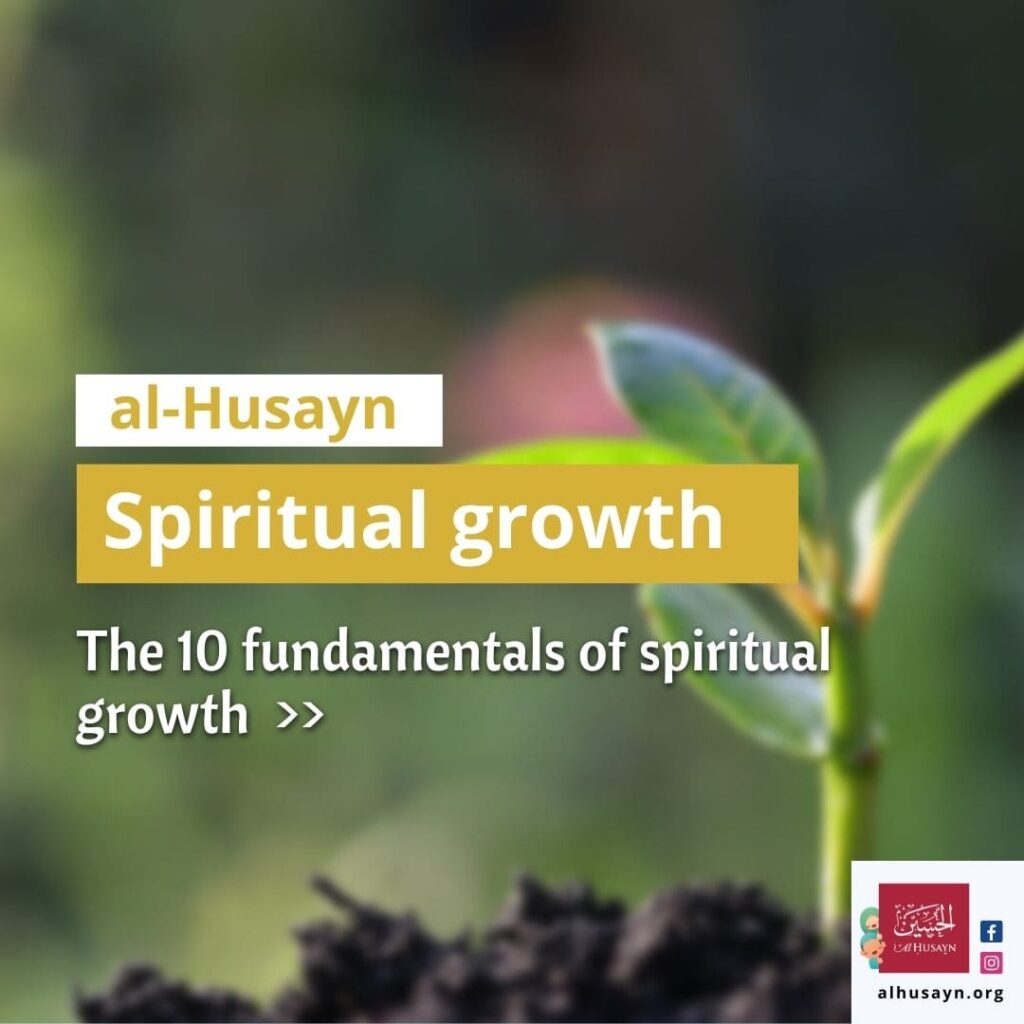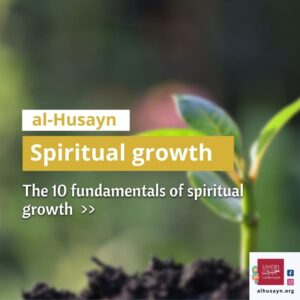In the name of Allah, the Beneficent, the Merciful. All praise be to Allah, the Lord of all the worlds. May peace and blessings be upon Prophet Muhammad, his family, and followers. O Allah, Lord of angels, Creator of the heavens and the earth, Knower of the hidden and the perceptible, He who judges between His servants, concerning that about which people differ, guide me with Your permission to the truth. You guide whom You will to the straight path.
Shukr al-Mun’im
Thanking the Benefactor. Expressing gratitude towards Allah means that the servant properly utilises all the favours with which he/she was favoured such as the mind, hearing, sight, tongue, etc. This gratitude should be present in the heart, visible in actions that are compliant with the pillars and expressed with the tongue. Presence in the heart implies that the servant correctly believes and realises that every favour comes from Allah. Expressing gratitude with the tongue is done, for example, by saying:
la ilaha illalla hu
“there is no God but He, Allah”
and by other (adhkar) remembrances. Acting according to the pillars means that a person performs the obligatory and recommended commands. One of the favours for which one should certainly be obligatorily grateful is that Allah allowed the servant to prosper so that he/she could repent and be grateful. Things for which the servant should be grateful are innumerable. Indeed, the Prophet, peace be upon him, said:
“I am unable to praise You in the way You praise Yourself.”[1]
Being grateful in this way is immensely honourable because it is in line with the way of those who are truthful. Allah, the Exalted, says:
“Few of My servants are frequently grateful.”[2]
[1] Muslim, narrated by the mother of the believers, °A’ishah, may Allah be pleased with her.
[2] Qur’an, 34:13
Al -Sabr ‘ala al-Balaa’
Being patient during trials. Here, it is necessary for one to restrain oneself during adversities that do not conform to his/her wishes. One does this by being content without dismay with the predestination of Allah, the Possessor, the One who chooses. Misfortunes include diseases, poverty, loss of property and children, inflicted damages, etc. The believer should also be patient in following Islamic rulings such as prayer, fasting and other forms of worship as Allah loves the patient servant. Allah, the Exalted, says:
“And give glad tidings to those who are patient.”[1]
and
“Only those who are patient will be rewarded with unlimited reward.”[2]
Patience is a characteristic of the steadfast and those with strong wills. It is required in everything because it only takes place according to Allah’s predestination, which one cannot escape.
Al-Rida
This foundation means that the believer prefers to satisfy his Lord rather than his ego. One does this by submitting to the established regulations (commandments and prohibitions) and surrendering to that which has already been preordained without (trying to) turn away from or oppose it.[1]
[1] A person is responsible for his/her actions according to the creed of Ahl al-Sunnah. A person who has free will and is capable of performing or refraining from doing actions will be held accountable for them. Even though these actions are known to Allah beforehand and were already prescribed according to His Al-knowledge, this does not contradict a person’s free will.
‘Ittiba’ shaykh ‘Aarif
Following a shaykh, murshid (a guide) who truly knows the way to Allah. This shaykh walks the path of those whom Allah loves and follows a guide himself with an unbroken chain up to the Messenger of Allah, peace and blessings be upon him. The one who does not accompany a shaykh, who guides him on the (spiritual) path to Allah and benefits from his knowledge and worship, can easily be exposed to Satan’s deceptions.
Conditions that a shaykh, murshid must fulfil are:
- He should adhere to the creed of Ahl al-Sunnah. A person who himself has lost track can never lead another to God.
- He should at least be a traditional scholar in the sense that he can look up the laws in order to illuminate those matters that satisfy Allah. A shaykh will therefore never proclaim or advise anything that is against the law.
- He should not commit public sins because one who commits sins openly should not be imitated.
- He should have an unbroken spiritual chain (Silsila) up to the beloved Prophet, peace be upon him.
A shaykh who guides a follower to Allah should follow the path of his predecessors in tariqah, emulate them in it, fight his ego until it is overcome, not be selfish and thus not abuse his position and knowledge. If a shaykh does not fulfil these conditions, it is required to avoid such a person.
A shaykh worthy of being followed can be recognized by the following traits, among others: generosity, good behavior, being merciful with creation, asceticism, humility and abstinence from complaining.[1]
[1] Having a shaykh is not obligatory but desirable, provided he meets the conditions. One finds the satisfaction of Allah only by following the path of the noble Prophet, peace be upon him, through observing the shari’ah and adhering to the creed of Ahl al-Sunnah. In this, a murshid acts as a guide who accompanies a follower. However, there were great pious scholars who did not have a murshid but had the utmost closeness with the beloved Prophet, peace be upon him.
Al-Ju’ Ikhtiyaran
Being hungry by consciously eating less. One achieves this state by starting with frequent fasting because it helps one control the pursuit of lust better. Indeed, acts are a result of food. Eating prohibited (haram) food leads to performing depraved and forbidden deeds and eating permissible (halal) food leads to virtuous deeds. When one consumes questionable (mutashabih) food it causes unsteady deeds that are not immune from ostentation, self-doubt and evil thoughts.
Al ‘Uzlah ‘an al-Nas Qatibatan
Separation from the people except the shaykh and educator, pious ones who urge obedience and necessary intercourse such as at work etc. Going among people is detrimental to the purification of the heart as most gatherings are not guarded against gossip and slander.[1]
[1] Scholars do need to go among people to teach them and urge others to do the right thing.
Al-Samt illa ‘an Dhikr Allah Ta’ala
Silence except when remembering Allah, the Exalted. Speaking causes division among people (and other disadvantages) while unity is required. This point and the previous two (eating less, seclusion and silence) are necessary in removing impurities in the heart that hinder one’s connection with Allah. For this, one has to work hard. Allah, the Exalted, says:
“Those who strive for Our sake, We will surely guide to Our ways.”[1]
This striving is done by always working against the ego in following evil desires and should be coupled with fear of the Majesty and Greatness of Allah. The servant should create such a bond with Allah that he prefers Allah above all and loves Him above all. Allah, the Exalted, says:
“As for the one who feared to face his Lord (before the Exaltation) and forbade the ego to follow lusts. The Garden, (Paradise) is then surely the abode.”[2]
Al-Sahar
Staying up during the night (for worship). The walker of the spiritual path should endeavor to spend the last third of the night in worship. The nightly voluntary prayers, asking for forgiveness, remembering Allah etc. are part of this worship. Allah, the Exalted, praises those who take advantage of this moment by saying:
“They slept little during the night. And in the last part of the night, they asked for forgiveness.”[1]
Remembering Allah at this time has a stronger effect than at other times.
[1] Qur’an, 51:17-18
Al-Tafakkur fi Badi’i Sun’i Allah
Contemplating the creation of Allah. Contemplating the creation gives a better understanding of Allah’s profound wisdom. As a result, the believer increases in knowledge and love. This is realized by standing, sitting, and lying down to contemplate and remember in a persistent manner. Remembering Allah is one of the main pillars of the spiritual path. This purifies the heart from everything outside Allah and creates a figurative radiant light through which one refrains from worldliness. The Qur’an mentions the importance of remembrance several times. Some verses related to it are:
“Remember Me and I will remember you.”,[1]“Those who remember Allah standing, sitting and lying on their sides and reflect on the creation of the heavens and earth.”[2], and
“Remember Allah frequently so you may triumph.”[3]
May Allah grant Shaykh Ahmad al-Dardeer paradise for the useful works he left behind.
The article is a summary of the famous ‘Aqidah work Sharh al-Kharidah written by shaykh Ahmad al-Dardeer al-Maliki al-Azhari rh. The great scholar of the Ahl al-Sunnah Imam al-Ghazzali rh. has also left some advice on how to develop spiritually and strengthen your bond with Allah.
To make these important advices easier to remember, we have made for you a beautiful bookmark with the 10 points to follow. Order it and have it in your book, Quran. (Its a digital file you can print).

Recommended
Bookmark with Salawat
Teach children, or yourself, to maintain a bond with the beloved Prophet ﷺ by sending the greeting of peace upon him. Also, suitable for the elderly. There are many beautiful messages from our Prophet ﷺ mentioned about the people who send the Salawaat on him. So teach your kids this.















